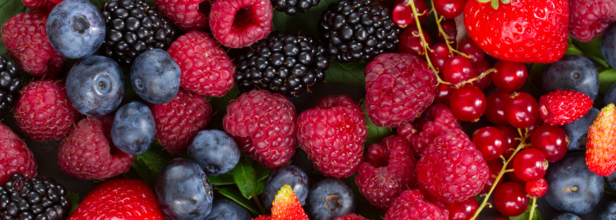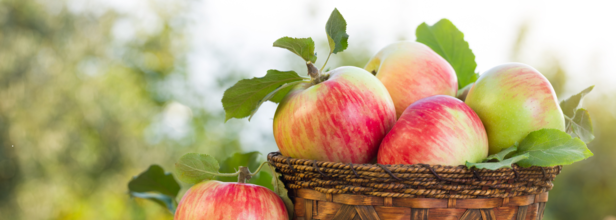
Credits: Canva
What Happens To Your Body When You Quit Carbs For 7 Days
While fads in diet come and go, the low-carb trend has maintained a firm hold on the global health and wellness industry. Introduced as early as the 1860s, the method regained popularity during the 1970s in the form of the Atkins diet and again with the more recent paleo and keto dieting. The overall idea has remained mostly the same: reduce carbs to shed pounds and experience metabolic benefits.
But what really happens in your body when you cut carbs completely out — even temporarily, like a week? An increasing number of individuals are giving temporary carb deprivation a try, wanting to learn how their body reacts. The outcome, however, is far more complex than expected.
What Are Carbohydrates?
Carbohydrates are one of the three macronutrients necessary — in addition to protein and fat — for the human body to function and be healthy in large quantities. Healthy adults, the 2020–2025 Dietary Guidelines for Americans recommend, need to consume between 45% to 65% of their daily calories from carbohydrates. These are fruits, vegetables, legumes, whole grains, and dairy — foods that also contain fiber, vitamins, and important minerals.
Notably, the body cannot produce carbohydrates by itself. That is, they have to be derived from diet. So what occurs when you defy this biological makeup?
Nutritionist Justin Gichaba went on social media platform Instagram, he started the challenge of eliminating all carbs for seven days and shared his experience on social media. His test revealed both the famous and lesser-known impacts of zero-carb living.
"I felt lighter, less bloated, and more mentally clear," Gichaba said. These short-term effects are typically reported by those who adopt low-carb diets. In fact, lower carbohydrate consumption can actually help to reduce water retention and normalize blood sugar first, which could result in greater alertness and less brain fog.
Yet the advantages had boundaries. "My workouts were horrible," Gichaba admitted. "I had no energy, and my performance was awful." Without carbs, he found strength training and endurance during cardio a challenge.
Why Energy Levels Take a Dip?
Carbohydrates are the body's first choice as a source of rapid energy — especially useful in physical activity. When you drop carbs, however, your body resorts to using fat for energy, going into a metabolic stage called ketosis. Although ketosis can work for weight reduction, it hurts many at the expense of weakness, decreased stamina, and recovery.
Carbs also help shuttle the body into rest and recovery mode after exercise. Without them, stress hormones can remain elevated longer, increasing fatigue and delaying muscle repair.
As your brain primarily runs on glucose (a simple carbohydrate), depriving it of its favorite fuel source can lead to cognitive side effects. People often report feeling mentally sluggish or irritable in the first several days of carb elimination.
In the early phases of ketosis, dizziness, headaches, and weakness are also experienced. These are the reactions to the metabolic change as the body learns to make ketones rather than utilizing glucose.
How Does No Carbs Affect The Body?
Another underappreciated effect of steering clear of carbs is a tremendous decrease in fiber intake, prevalent in whole foods like whole grains, fruits, legumes, and vegetables. Fiber is imperative in aiding digestion, ensuring daily bowel movements, and nourishing beneficial gut flora.
Without fiber, most individuals on zero-carb diets are plagued by constipation, bloating, or gut dysbiosis — complications that can remain or intensify with long-term restriction.
While short-term carb restriction can facilitate rapid weight loss, studies indicate that long-term compliance with very low-carb diets can be detrimental to health. A 2022 study in Current Developments in Nutrition reported that some participants on low-carb diets had a rise in LDL (bad) cholesterol, most likely because of lower fiber and higher saturated fat consumption.
Other long-term hazards can include kidney stress, bone loss of density, and decreased physical function, although evidence is conflicting. Population studies have also found a correlation between very low-carbohydrate diets and increased all-cause mortality, although causation has yet to be determined.
Completely eliminating carbohydrates is not only nutritionally unbalanced but frequently unsustainable. Omitting one food group can result in deficiencies and enhance the risk of disordered eating behavior.
Rather, quality over quantity is recommended by experts. Not all carbohydrates are equal — leafy greens, sweet potatoes, berries, and legumes are rich in nutrients that maintain long-term health. Steer clear of ultra-processed, sugary carbs and not all carbs in general.
Should You Go Carb-Free?
For the average healthy person, the drawbacks of eliminating carbs outweigh any benefits — particularly in the long run. Carbohydrates play a role in brain function, digestion, muscle function, and hormonal balance. If you do want to use a low-carb diet for particular health issues, talk with a health care provider or registered dietitian so that it is done safely and in a sustainable way.
A week of going carb-free can be a fun experiment, but it should not become a way of life without precise medical advice. The smarter option? Focus on whole-food, complex carbs and keep nutrition balanced.

Credits: Canva
8 Healthiest Berries You Could Ever Eat
Berries are among the healthiest fruits you can eat. Packed with fiber, vitamin C, and antioxidant-rich polyphenols, they’re more than just tasty — they’re a nutritional powerhouse. Regular consumption of berries has been linked to improved heart health, better blood sugar regulation, and protection against chronic diseases like diabetes, cancer, and cognitive decline.
You can enjoy them raw, in smoothies, desserts, or even as part of savory dishes. Here are eight of the healthiest berries worth adding to your plate.
Blueberries: Tiny Brain Boosters
Blueberries are rich in vitamin K and anthocyanins, which give them their deep blue color and potent antioxidant properties. One cup offers 84 calories and 3.6 grams of fiber. These berries may help lower LDL cholesterol, improve artery function, and support brain health by enhancing neuroplasticity and reducing inflammation.
Raspberries: Fiber-Rich and Gut-Friendly
A cup of raspberries contains just 64 calories but packs in 8 grams of fiber and 36% of your daily vitamin C needs. Rich in ellagitannins, raspberries help fight oxidative stress. Some studies show they may improve immune markers and even positively affect gut bacteria in people with prediabetes.
Goji Berries: Ancient Fruit, Modern Benefits
Goji berries (or wolfberries) have been used in Chinese medicine for centuries. Just 28 grams of the dried fruit delivers high amounts of vitamin A and iron. Research shows goji berries may offer antioxidant, antimicrobial, and prebiotic benefits, possibly aiding in eye health, cancer prevention, and improved lipid profiles.
ALSO READ: This 5-letter Fruit Does A Lot More Than Just Keeping Doctors Away
Strawberries: Immune-Boosting All-Rounders
A favorite in salads and desserts, strawberries are low in calories and high in vitamin C — one cup provides a whopping 94% of your daily value. They’ve been linked to improved heart health, inflammation reduction, and even better insulin sensitivity when consumed regularly.
Bilberries: The European Cousin of Blueberries
Native to Europe, bilberries are high in vitamin C and manganese. Like blueberries, they contain anthocyanins that may support heart and eye health, regulate blood sugar, and reduce post-exercise muscle inflammation. Some studies even suggest benefits for people with type 2 diabetes and those recovering from heart attacks.
Açaí Berries: The Amazon Superfood
Açaí berries are most often consumed as freeze-dried powder or juice. Though research is still emerging, early findings point to their potential in reducing oxidative stress and supporting cardiovascular, neurological, and metabolic health. They may even help lower cholesterol and blood sugar levels when consumed regularly.
Cranberries: Nature’s UTI Fighter
Best known for preventing urinary tract infections, cranberries contain compounds that prevent bacteria from sticking to the urinary tract lining. A cup of raw cranberries gives you 3.6 grams of fiber and vitamin C. They may also help guard against stomach ulcers and support heart health — just go easy on the sweetened juice.
Grapes: Heart and Brain Supporters
Often overlooked as a berry, grapes are rich in polyphenols found in their skins and seeds. These compounds support heart health by lowering blood pressure and inflammation. Preliminary research even suggests grape juice may enhance cognitive function in older adults.

Credits: Canva
This 5-letter Fruit Does A Lot More Than Just Keeping Doctors Away
This five-letter fruit is something you can find easily. You must have had this in your life a little too many times and have heard a phrase so common. This five-letter fruits in a day, keeps doctors away! Yes, you guessed it right, this fruit is Apple!
They are the most widely consumed fruit globally and all for good reasons. With their natural sweetness, versatility and nutrient-dense profile, the offer more then just taste. But did you know that there are more benefits than you know about apples? Let's delve deeper into it:
Apples Are Nutrient Dense
A medium apple (about 200g) offers 104 calories, 28g of carbs, 5g of fiber, and 10% of the Daily Value (DV) for vitamin C. It also provides copper, potassium, and vitamin K. As per the US Department of Agriculture, Importantly, apples contain powerful polyphenols, especially in the skin, which act as antioxidants and contribute to their health effects.
Apples Could Help You Lose Weight
Apples are high in water and fiber, which increase satiety. A study published in Appetite (2009) by Flood-Obbagy and Rolls found that eating whole apples led to greater fullness and reduced calorie intake compared to apple juice or purée. Apple polyphenols may also suppress fat accumulation.
Apples Aid In Heart Health
Apples may reduce the risk of heart disease thanks to their soluble fiber and antioxidant content. A review in Critical Reviews in Food Science and Nutrition (2015) found that consuming apples significantly reduced LDL cholesterol. The polyphenol epicatechin in apples is linked to lower blood pressure and stroke risk.
Apples Could Lower Your Diabetes Risk
A meta-analysis published in BMJ (2013) revealed that eating apples and pears reduced the risk of type 2 diabetes by 18%. The polyphenol quercetin may play a role by improving insulin sensitivity and reducing inflammation.
Apples Can Improve Your Gut Health
Apples contain pectin, a type of soluble fiber that acts as a prebiotic. A study in Nutrients (2017) by Swanson et al. showed that prebiotics help maintain a healthy gut microbiome, supporting digestion and immunity. Pectin encourages the growth of beneficial bacteria like Bifidobacteria.
Apples May Benefit Asthma Patients
The flavonoid quercetin in apple peels may help reduce airway inflammation. A study in the American Journal of Respiratory and Critical Care Medicine (2001) found that children of mothers who ate apples during pregnancy had a lower risk of asthma.
Apple Is Good For Your Brain
Animal studies reviewed in Nutrients (2021) suggest that quercetin may reduce oxidative stress and inflammation in the brain, potentially lowering the risk of Alzheimer’s disease. However, more human studies are needed.
Apples Can Keep You Happy
A 2020 systematic review in Nutrients found that higher intake of fruits like apples was associated with improved mood and reduced risk of depression, especially when consumed as part of five daily servings of fruits and vegetables.
Apples Are Great For Your Digestive Functions
Thanks to their fiber, apples may ease digestion and reduce the risk of gastroesophageal reflux disease (GERD), according to a 2021 review in Frontiers in Nutrition. Apples also promote regular bowel movements and can help relieve mild constipation.

Credit: Canva
Why Should You Not Consume Fruits And Milk Together?
In the world of modern nutrition, fruit and milk often come together in smoothies, fruit salads, or shakes, promising a boost of energy and nourishment. But Ayurveda, India’s ancient system of holistic healing, views this combination quite differently. According to Ayurvedic principles, mixing milk with fruits—especially sour or citrus varieties—can disturb the body’s internal harmony and lead to a range of physical imbalances.
Ayurveda classifies food based on its taste (rasa), energy (virya), and post-digestive effect (vipaka). Milk is considered a wholesome, nourishing food that is sweet in taste, cooling in nature, and heavy to digest. On the other hand, most fruits—particularly citrus or sour ones like oranges, pineapples, berries, and kiwi—are light, acidic, and quickly digestible. When these two types of food are consumed together, they are believed to be incompatible (viruddh aahar), meaning they can disrupt the body’s agni (digestive fire) and create ama (toxins).
1. Digestive Disturbances
One of the most immediate and noticeable side effects of combining fruits with milk is poor digestion. Since fruits digest faster than milk, they may ferment in the stomach, especially when combined with milk’s heavier digestion time. This can lead to gas, bloating, acidity, and even nausea in some individuals.
2. Toxin Accumulation (Ama)
According to Ayurveda, incompatible food combinations slow down the digestive process, leading to the accumulation of undigested food residue or ama. Over time, this toxic buildup can interfere with nutrient absorption, reduce immunity, and lead to fatigue, dull skin, or a coated tongue.
3. Skin Problems
Regular consumption of milk with sour fruits is believed to aggravate the body's doshas, particularly Pitta and Kapha. This imbalance may manifest as skin eruptions, acne, or eczema, especially in people with sensitive skin or a predominance of the Pitta dosha.
4. Respiratory Issues
One of the most commonly observed effects—especially in children—is an increase in mucus production. Mixing milk with bananas or mangoes may result in respiratory congestion, frequent colds, or coughs. Since both milk and some fruits have Kapha-inducing properties, they can lead to an excess of phlegm and heaviness in the chest.
5. Reduced Digestive Fire (Agni)
Over time, consuming incompatible food combinations like milk and fruits can weaken the digestive fire (agni), which is central to maintaining health in Ayurveda. A weak agni leads to poor digestion, reduced appetite, and sluggish metabolism.
Are Any Fruits Safe with Milk?
Not all fruits are strictly incompatible with milk. Sweet, ripe, and non-acidic fruits like dates, soaked raisins, and ripe mangoes (in moderation) are sometimes used in Ayurvedic recipes. For example, mango lassi is a traditional drink made with sweet mango pulp and yogurt, though even this is best consumed during summer and in moderation.
Ayurvedic Verdict
While fruit and milk may seem like a healthy combination from a modern perspective, Ayurveda advises caution. For optimal digestion and long-term wellness, it’s best to consume milk and fruits separately. When in doubt, always consult an Ayurvedic practitioner to understand what suits your unique constitution (prakriti) and lifestyle.
© 2024 Bennett, Coleman & Company Limited

